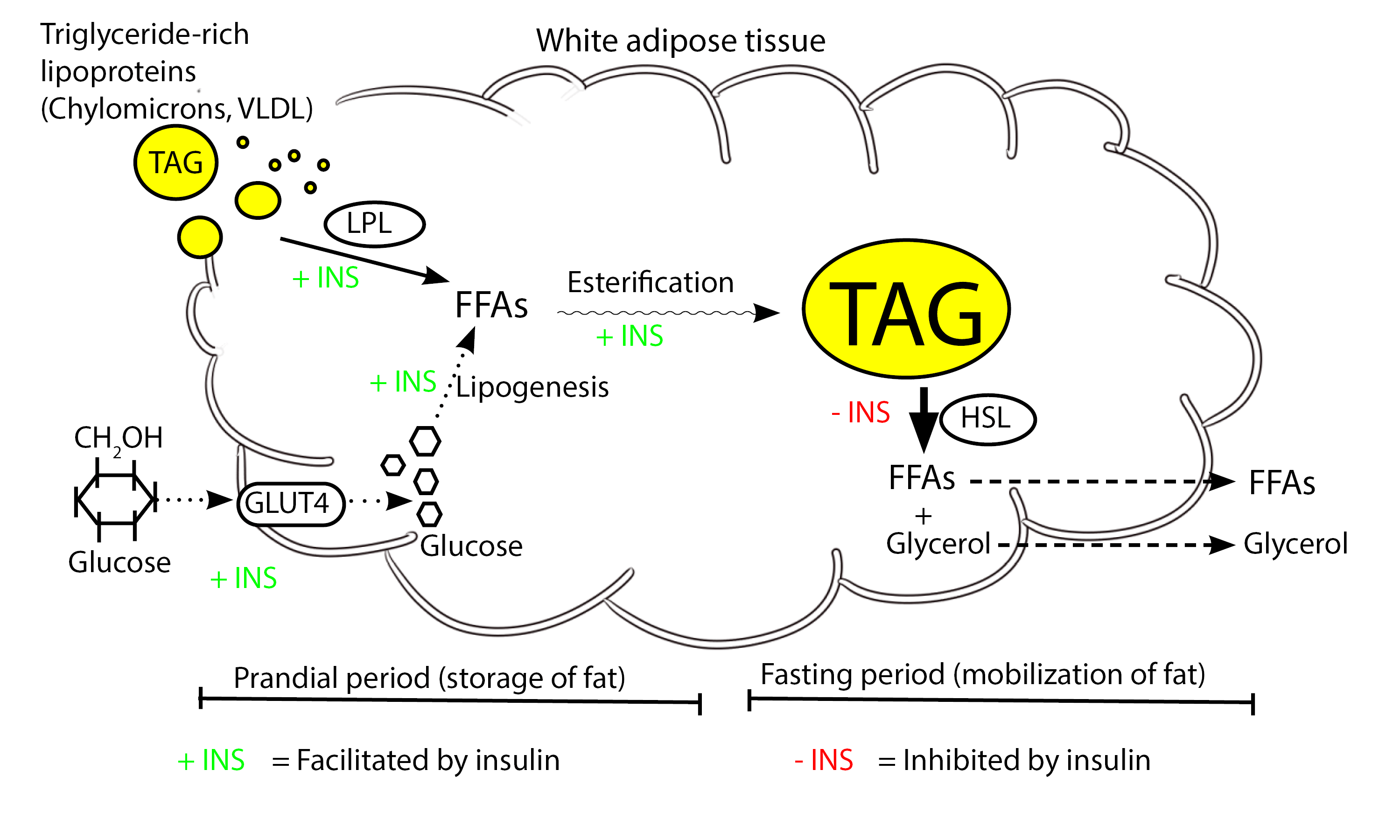A comparison of the roles of hormone-sensitive lipase (HSL) and lipoprotein lipase (LPL) in adipose tissue metabolism.
Role of HSL and LPL in fat metabolism

Fig. 1. Schematic diagram of the role of LPL and HSL in fat storage and mobilization. LPL is synthesized in adipocyte tissue and is then transported to its site of action, which is the luminal surface of the capillary endothelium. LPL is involved in the uptake of fatty acids into adipose tissue by mediating the hydrolysis of triacylglycerol (TAG) laden lipoproteins into free fatty acids (FFAs) (thin arrow). Glucose transporter 4 (GLUT4) mobilizes glucose from the peripheral circulation for lipogenesis in adipose tissue. This occurs in the fed state and is facilitated by insulin (dotted arrows). The esterification of FFAs into TAG is potentiated by insulin (wavy arrow). Hormone-sensitive lipase (HSL) mediates the conversion of TAG into glycerol and FFAs (thick arrow) for subsequent release into the bloodstream (dashed arrows). This process of fat mobilization occurs in the fasting state and is inhibited by insulin[1].
Comparison of HSL and LPL
| Feature | Lipoprotein lipase | Hormone Sensitive Lipase |
| Effect of insulin | Insulin activates lipoprotein lipase | Insulin inhibits hormone-sensitive lipase |
| Site of hydrolysis | Extracellular triglycerides present in lipoproteins | Triglycerides present in the adipocyte |
| Location of hormone | Present in the luminal surface of endothelial cells of capillaries (adipose tissue) | Present in adipocytes |
| Fat metabolism | Storage of fat | Mobilization of fat |
Clinical Pearl
Management of hypertriglyceridemia-induced pancreatitis
A continuous intravenous insulin infusion is used in treating significant hypertriglyceridemia-induced acute pancreatitis. Insulin augments the action of LPL, which facilitates the transfer of TAG rich lipoproteins such as chylomicrons and VLDL from the circulation into fat stores in adipose tissue (see figure 1)[2].
References
- Frayn KN, Coppack SW, Fielding BA, Humphreys SM (1995) Coordinated regulation of hormone-sensitive lipase and lipoprotein lipase in human adipose tissue in vivo: Implications for the control of fat storage and fat mobilization. Advances in Enzyme Regulation 35:163–178
- Khan R, Jehangir W, Regeti K, Yousif A (2015) Hypertriglyceridemia-Induced Pancreatitis: Choice of Treatment. Gastroenterology Res 8:234–236
Kindly Let Us Know If This Was helpful? Thank You!


